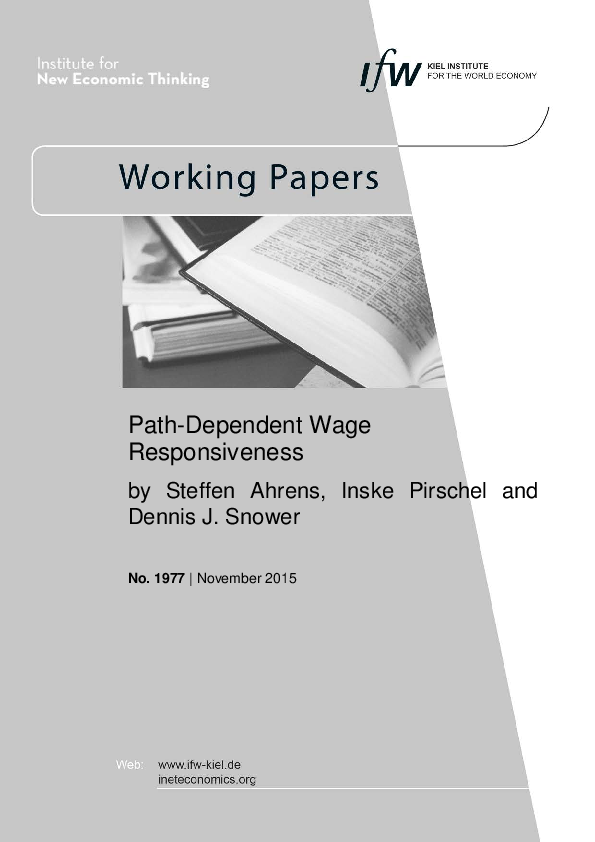Authors
Publication Date
JEL Classification
Key Words
We present a theory of nominal wage adjustment based on worker loss aversion, along the lines of prospect theory. Wage changes are evaluated relative to an endogenous reference wage, which
depends on the workers’ rational wage expectations from the recent past. By implication, firms face an upward-sloping labor supply curve that is convexly kinked at the workers’ reference wage. Firms adjust wages flexibly in response to variations in labor demand, incorporating the endogenous response of the reference wage. The resulting theory of wage adjustment is starkly at variance with past theories. In line with the empirical evidence, we find that (1) wages are completely rigid in response to small labor demand shocks, (2) wages are downward rigid but upward flexible for medium-sized labor demand shocks, and (3) wages are relatively downward sluggish for large shocks.







